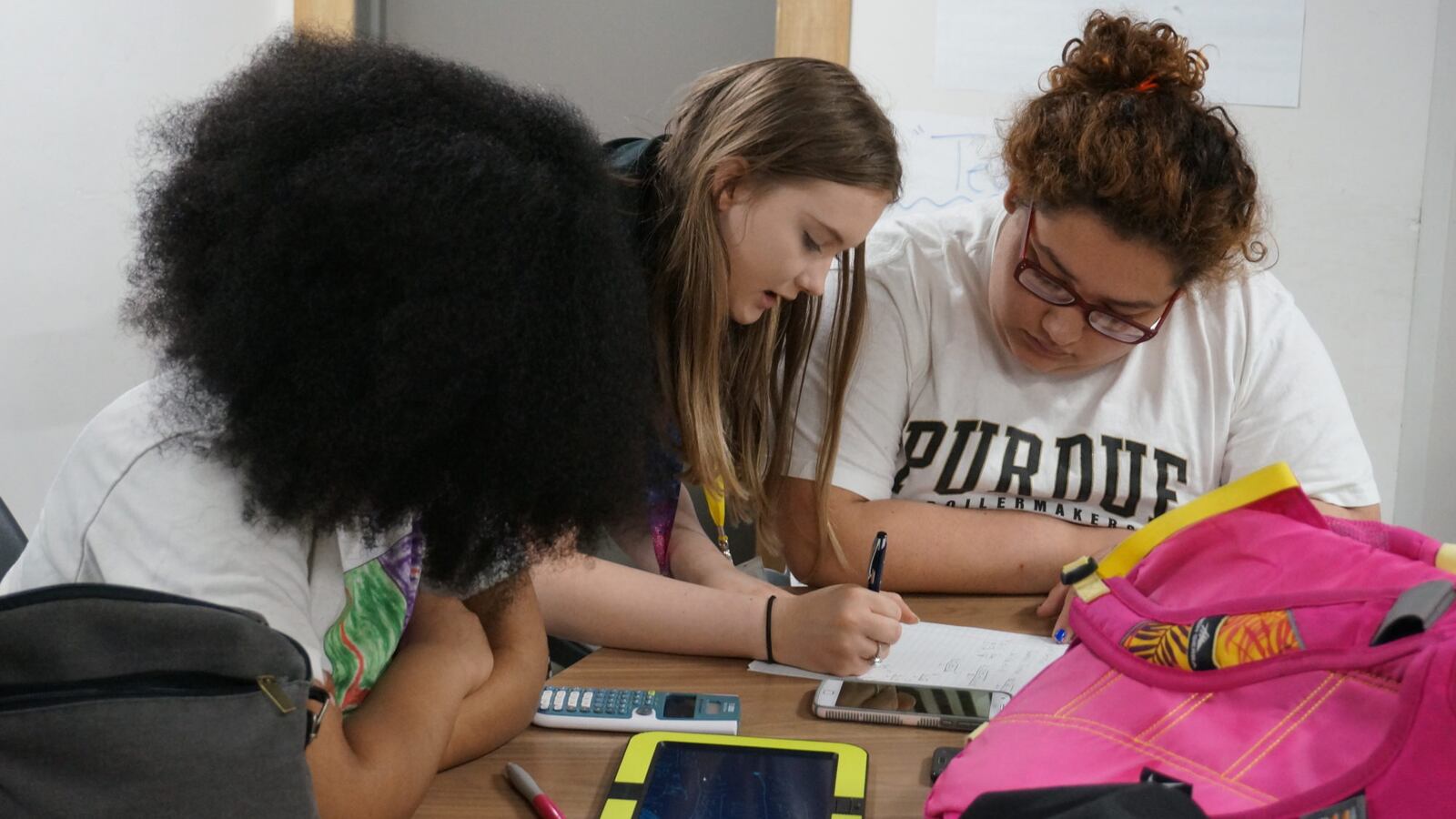More than a year after Indianapolis Public Schools won a successful tax referendum that brought an influx of extra funding, the district still doesn’t have a clear plan for sharing that money with independently managed schools in its network.
While the 2018 operating referendum has resulted in traditional public schools getting millions of extra dollars in increased salaries for teachers and administrators, the district’s 14 innovation charter schools have not gotten extra cash from the referendum, which is expected to raise about $27.5 million a year over the next eight years.
When Indiana districts raise revenue through operating referendums, the money is not typically shared with charter schools, which do not get local funding from property taxes. But the Indianapolis Public Schools innovation network complicates the equation because although they are managed independently, the schools are considered part of the district.
Superintendent Aleesia Johnson said the administration is still assessing whether innovation charter schools should get access to operating referendum funds. She wants to ensure the money is spread “in a way that’s equitable for all schools in our family,” Johnson said.
Innovation school enrollment and academic results are counted as part of IPS, and some of their supporters say the schools should be treated the same as other campuses. But others contend that when voters approved the tax, they intended to give money to neighborhood schools — not charter schools. Because teachers at innovation schools don’t work directly for the district, they cannot join the union and are not covered by the same contract.
“As they think about funding challenges and future referenda — this needs to be clear at the front end,” said Mark Fisher, chief policy officer for the Indy Chamber.
Fisher argued that the district needs to find a way of sharing the referendum money. “Those are the district’s kids,” he said. “We have to see innovation schools … as part of the overall system.”
Whether charter schools should get access to property tax revenue has been a point of contention in Indiana for years. The creation of innovation schools has opened a door, and there are indications that some district leaders are willing to share local money.
A separate facilities referendum is benefiting schools that occupy district buildings regardless of whether they are charter or traditional district schools. And IPS is giving local property tax revenue to an increasing number of charter schools by funding transportation, a service that’s historically been paid for with property tax money. Over the past year, the school board has approved deals to help underwrite the cost of busing students at charter schools that are in the innovation network and housed in district facilities, either by providing free transportation or by giving schools money to offset the cost.
School board member Elizabeth Gore opposes sharing property taxes with innovation charter schools because she said her constituents voted for referendum dollars to be used in traditional IPS schools. “It’s kind of a gray area that I think the board needs to discuss,” she said.
The term innovation encompasses an array of schools with different relationships to the district. Some are managed by nonprofits and closely tied to IPS — which provides essential services, such as special education — and receive funding through the same formula as neighborhood schools. Those campuses are already receiving money from the referendum.
Most of the schools in the network, however, are charter schools, which have legal authority to run independently and have not received operating revenue from the referendum. Some of those schools get buildings and services from the district, while a small number have their own buildings and only a tenuous connection with the school system.
Purdue Polytechnic High School, an innovation school that doesn’t receive space or services from the district, has not gotten money from the referendum, said Scott Bess, the head of schools. The school is boosting salaries for teachers to stay competitive with IPS, but without the referendum money, they have had to make cuts in other areas, Bess said.
“I’m thrilled they got the money,” Bess said. Ultimately, however, “our parents are paying higher taxes now to support improved educational opportunities for children other than their own.”


